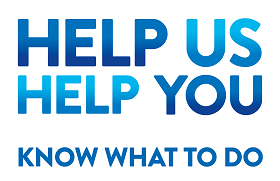Our reasonable adjustment and disability guide
Monday, December 16, 2019
Overview
We know from working with national, regional and local disability organisations that there is a significant gap in the NHS in carrying out ‘reasonable adjustments’ to enable people with a disability to engage effectively with their health services.
How we responded
To address this, we developed reasonable adjustment guidance for our CCG staff to help them support and enable disabled people to get involved in commissioning.
We reviewed and updated our reasonable adjustment guide at the end of 2019, making it available on our website to our residents for the first time, so they are clear about the support they can expect from us to help them get involved in their local NHS. We adjusted it to be just as much a resource for our residents as our staff. So, it now contains more practical examples, links to other resources and contacts for more information to support more of our residents to get involved in our work.
Recent examples of how our staff have used the guidance include providing our governing body meeting papers and an event about patient participation groups in audio form. This has been integral to supporting a member of Healthwatch Sefton and the local disability network to get involved and access our meetings in line with their information and communication needs.
We also continue to work with Merseyside Society for Deaf People (MSDP), who is the access point for the deaf community to share patient experience relating to our CCG commissioned services. This is empowering disabled people to get involved and importantly help us to identify any issues with our services early, or make improvements where necessary. MSDP has produced a British Sign Language video for our website to raise awareness amongst the deaf community of the support the organisation provides.
Our guide is amongst a number of other tools that are part of our accessibility framework. It also complements the 5 steps of the national Accessible Information Standard, which we also promote and encourage our staff and member GP practices to use in their day to day work.
Outcome
As a result of introducing our reasonable adjustments guidance, awareness of the needs of disabled people amongst our staff has improved. Importantly, this has enabled greater involvement of disabled residents in accessing our meetings, as well as ensuring more patient experience from seldom heard groups flows through to us in the CCG to influence and make improvements to the services we commission.
Additionally, we provide an equality service to all CCGs in Merseyside. As part of this service, our team leads an equality collaborative, bringing together all NHS providers and CCG commissioners in the area. This forum supports us all in meeting the requirements of the Equality Delivery System, known as EDS 2. By working through the forum, our reasonable adjustment guide has been adapted and adopted by providers and partners across the Merseyside equality collaborative.





